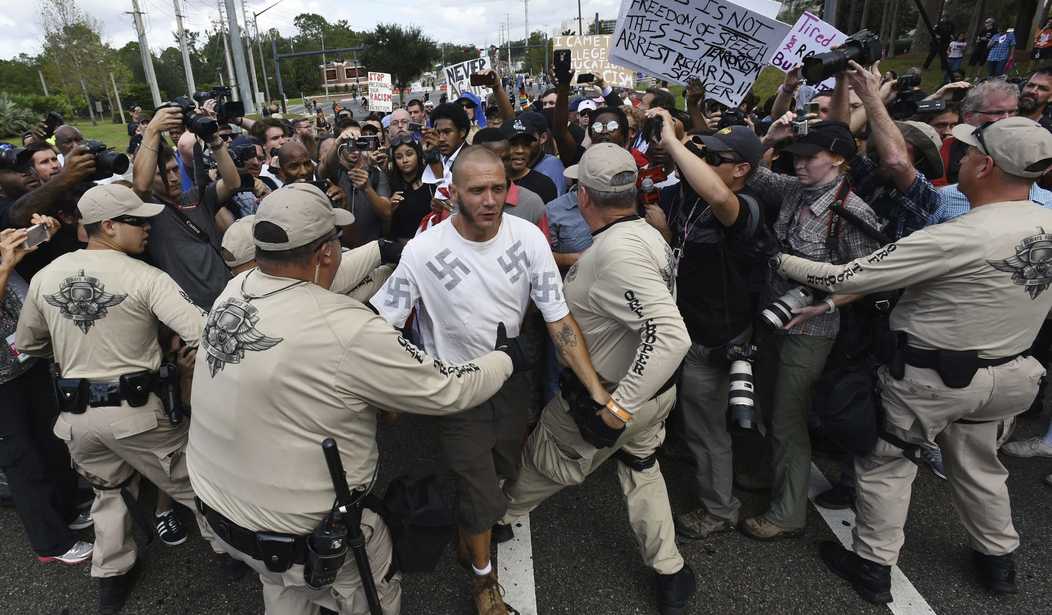WASHINGTON – A growing debate concerning free speech on college campuses is taking place against the backdrop of increased white nationalist activity that has been emboldened by President Trump’s rhetoric, a hate-group expert told Congress today.
Richard Cohen is president of the Southern Poverty Law Center in Birmingham, Ala., which tracks extremists and hate groups. According to Cohen, his organization recorded a decline in organized hate groups around the U.S. between 2013 and 2014, but reported an increase during the presidential campaign between 2015 and 2016. While white supremacists historically don’t support either party, citing corruption, he said, hate groups openly endorsed Trump, thinking they would have the ear of the president or former White House chief strategist Steve Bannon.
“I hope (Trump) sorely disappoints (the hate groups),” Cohen told the Senate Committee on Health, Education, Labor & Pensions. “I hope he changes his rhetoric, but that’s the (situation) now, and that is why we’re seeing this targeting of college campuses by an energized white supremacist movement.”
At the same time, Cohen defended the free-speech rights of political scientist Charles A. Murray and other controversial speakers on college campuses. Murray, who has argued that IQ levels differ from race to race, sparked a violent protest at Middlebury College earlier this year. Controversy erupted again over Murray when it was announced that he would be speaking at his alma mater Harvard, just weeks after the deadly white supremacist rally in Charlottesville.
In defending Murray’s right to speak, Cohen said progress is made by having ideas tested and having critical thoughts in every realm of society, and the U.S. would be much worse off if college campuses could suppress speech simply because administrators disagree with the content.
Sen. Elizabeth Warren (D-Mass.) agreed with Cohen, arguing that suppression of speech is a “dangerous” route.
“First, suppression can backfire,” Warren said. “Instead of shutting up individuals with disgusting views, it becomes a launching pad to national attention. Bigots and white supremacists can make themselves out to be First Amendment martyrs and grow their audiences. Second, suppression suggests weakness. It makes us sound afraid, like we’re afraid we can’t defeat evil ideas with good ideas, and I just don’t believe that’s true.”
She noted that free speech doesn’t mean the speaker is entitled to an audience. Nor does it mean that an audience should stay silent when the speaker demeans other groups, she said, arguing that students are free to critique and make their voices heard.
Sen. Johnny Isakson (R-Ga.), who chairs both the Veterans’ Affairs and Ethics committees, agreed that contrary opinions should have equal rights. He cited quotes from Martin Luther King, Jr., and the Chicago principles.
“Free speech is the most important, if you had to pick one, of all our rights, and used in the proper perspective and without abuse of using it in the proper perspective, can make fundamental change,” he said.
Committee Chairman Lamar Alexander (R-Tenn.) agreed with Warren’s assessment that free speech is not a right-left issue, and expressed hope that Congress does not attempt to legislate how colleges direct speech on campuses.
“We live increasingly in a country where we tend to get our information from people who already agree with us, or we agree with them,” Alexander said. “We don’t do as (former) Sen. Howard Baker (R-Tenn.) said, ‘Consider the other fellow might be right.’ … We don’t have as much diversity of information as we should have, and I suppose college education, and maybe especially a liberal arts education, is a real anecdote to that. It makes universities even more important places where students are exposed to different points of view.”









Join the conversation as a VIP Member